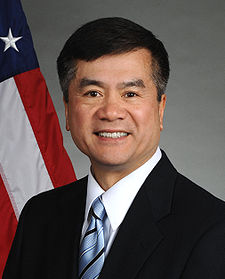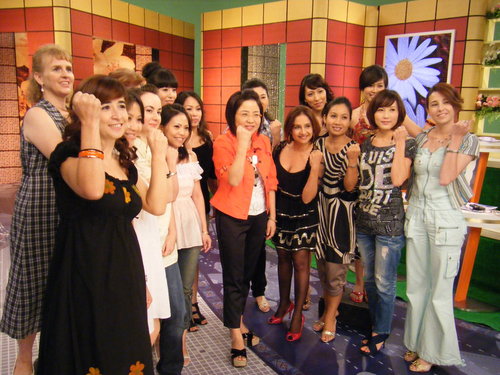So as I was translating for a completely unrelated project this evening (I've been translating summaries of the plays of some of the founders of contemporary Taiwanese theatre for a school website), I came across an amazingly apropos CUNY blog,
Revisions: Embracing the Multilingual Experience, and this blogpost,
Multilingual Selves. After spending numerous hours on this translating project, the language-processing functions of my brain have begun to deteriorate. I question what voice I am writing in with each language. And then, all of a sudden, this Taiwanese woman with better English writing skills than me is seemingly sending me this message that I'm not alone! Amazing:
然而萬花筒再如何千變萬化,裡面包含的畢竟還是同樣的面鏡和色片。用不同語言來表達,其實都是了解自己的不同途徑。目前的掙扎或許只是尚未掌控好旋轉萬花筒的頻率與角度,待技巧嫻熟之後,但願我能夠在使用不同語言的自我之中轉換自如,甚至樂在其中。
No matter how many patterns a kaleidoscope can make, it’s composed of the same mini-mirrors and colored beads. Using different languages to express myself can be seen as different approaches to understanding different parts of me. Maybe I just haven’t mastered playing with the kaleidoscope of my life yet. Hopefully, one day, I will be able to switch between my different selves more comfortably, and enjoy the various patterns I create.
Okay, so she's not talking about translating
per-say. But what she
is talking about is how language affects identity and self-recognition. It made me think of this story from my own bi-lingual experience. A few years ago, while I was still living in Changhua and hadn't started grad school yet, I was having a conversation with a guy, lets call him Blaine, from the U.S. who lived in Taipei. I'd been in Taiwan for probably 6 or 7 years at the time, and he had been here about the same amount of time. His mom is an immigrant to the US from Korea, and his dad is a white guy born and raised in the U.S. Blaine had been to Korea a few times to visit relatives, but his mom had never spoken Korean at home and he had no Korean language ability.
Anyway, while Blaine and I had both lived in Taiwan a similar length of time, and while we both worked in companies with Taiwanese partners, and while we were both from the west coast of the US, there was one glaring difference between us: I speak Chinese and he didn't (perhaps he does now...I can't say as I haven't seen him since.). Normally, that difference wouldn't have much affect on our conversation, but that day we started talking about learning and speaking Chinese in Taiwan. We'd both studied Chinese when we first arrived on the island, but he got busy with work and quit his studies. I got busy with living with a Taiwanese family in a small town and continued my studies (secret to language learning: environment, environment, environment).
We were talking about the trials and tribulations of the Chinese language when I mentioned, almost as an aside, that I have a different personality in Chinese than I do in English. He was taken aback by that, and wondered why I would have two different personalities. I'm the same person, aren't I? I told him that it would be difficult for me to function fluidly if I kept the same styles of communication, humor or body language across both languages. After pausing and reflecting for a moment, I continued, "I don't do it on purpose, it just happens naturally". He honestly seemed to be offended by what I had just told him. He told me that I SHOULD have the same personality because it's disingenuous if I change what I talk about and how I say it to try to "fit the culture". Basically, he was telling me that if I don't have the same mannerisms and attitudes in Chinese that I do in English, then I'm being fake.
Hmm. Well, after listening to what he had to say (and I didn't give him any of that famous Katie Partlow attitude, if you're wondering), I came up with an example to describe my situation. I said that I have a car in Taiwan. I also have a car in the U.S. (well, I suppose now it should be considered my dad's...he's been driving it longer than I ever have!). The way I drive my car in Taiwan is WAY different than how I would drive in the U.S. If I drove in the U.S. like I drive in Taiwan, some other driver on the road would probably get road-rage and kill me. But if I drove in Taiwan like I drive in the U.S., some other driver would probably run me over as they were trying to maneuver around my slow butt. There's a strong likelihood that I would be seriously injured or even die in either situation. I adapt my driving personality to fit the driving culture I'm in so that things go more smoothly and so that I'm not in danger. My communication personality is the same. It changes based on the communication and linguistic culture of the person I'm talking to, and the changes are most pronounced when I'm changing to and from Chinese and English. It changes for survival, just like with driving, but it also changes for ease and comfort.
I asked Blaine what he thought. He said he doesn't drive.
But seriously, I can see what the author of that blog post is saying about the kaleidescope of personality. I too struggle with the switches. Every time I go back, it takes me at least a week of being in the U.S.
before people really start to laugh at my jokes. It's not that my jokes aren't funny that first week; my Taiwanese friends would probably be laughing hysterically if they heard the joke. It's that the kaleidescope setting for my humor hasn't switched over to U.S./native English yet. I can sympathize with her - I wish I could switch back and forth with much greater ease as well. I can sometimes get kind of awkward in social situations in both countries because I'm struggling with switching the kaleidescope to the right setting, and I really admire my bilingual friends that can move smoothly and seamlessly between both worlds.
One other note: this kaleidescope isn't exclusive to people who speak multiple languages, though. I mean, the way I'd talk to a classmate versus how I'd talk to a teacher varies slightly (though that variation is much greater in Chinese than in English), even if both relationships were based on the same language. In the end, I guess, the kaleidescope switches derive from differences in culture and social status.
And with such large social and cultural differences between Taiwan/Mandarin and U.S./English, it's no wonder I've got to change my driving styles.








